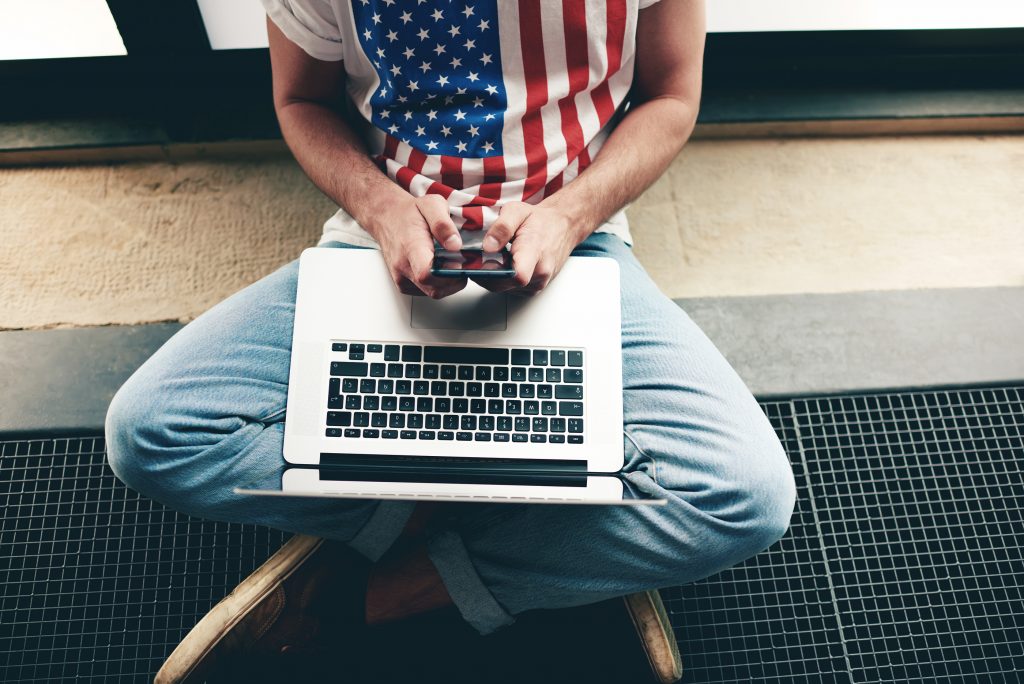
I’m nearly always plugged in. I obsessively check my email, then my Instagram and Facebook (because, hey, I’m already on my phone, so why not?). I carry a supercomputer in my back pocket all day, and set it on my nightstand within arm’s reach while I sleep. My devices end up serving as security blankets, but as I’ll often feel a mini wave of panic when I can’t see that phone in my periphery, that comfort has definitely turned into dependence.
It’s no secret that being constantly connected can make us suffer in ways we don’t fully realize. Study after study highlights the negative way we are affected by our compulsive internet behavior. Too much tech rewires our brains in a way that makes us less productive, less happy, less focused. I know when I’m too “plugged in” I start to feel anxious and a little depressed. Most of us need the internet to survive in some capacity, but we certainly don’t need so much of it.
The same principles of working towards a healthy diet when it comes to food can certainly be applied when it comes to technology — moderation is key. Totally eschewing technology altogether isn’t exactly a sustainable way of living , but being intentional about your day-to-day habits will help form a balanced tech diet (I did a month-long Facebook cleanse and came back feeling like I was about to start a new life. Then, like with any sort of restrictive diet, I fell back into old patterns). There’s nothing wrong with keeping up with your friends on social media, posting your favorite photos to Instagram, reading a great online article or staying on top of your emails. Technology is a great tool when it is serving you, but it can become a terrible master if you aren’t mindful of how you are interacting with it.
Rather than yo-yo dieting with social media, it’s important to maintain a healthy digital diet. The best way to do that?
- Build a routine that allows you to unplug. Have a designated spot to dock your phone when you are at home, and only use it in that area. Don’t carry it around the house in your back pocket, or you’ll inevitably pull it out the moment there is a lull. If I keep my phone charging in the kitchen, I am way less likely to drag it around the house and sit on the couch staring into a Facebook abyss. Plus, it’s a great location for me to listen to podcasts while I clean. Win win.
- Place boundaries on your technological use, whether that means removing certain apps from your phone, only checking email once or twice a day, or giving yourself an allotted amount of time to spend on social media. When I only check email once in the morning and once and night, I am more focused on being in the moment throughout the day, instead of constantly worrying about work.
- Turn off notifications on your phone. Hearing that little “ding!” every time someone likes your Instagram photo is only going to feed your iPhone addiction. I turned off all of my phone’s notifications except for messages, and now I’m less tempted to check it constantly.
- Don’t sleep near your phone. In fact, to make sure you get a good night’s sleep, it’s best to dial back your intake of blue light (i.e. anything with a screen) an hour or so before you want to hit the hay. I’ll sometimes leave dishes in the sink until bedtime, so I have a non-screen task to complete before going to bed. Lazy? Perhaps. Effective? Yes.
- Try to set aside one day a week to free yourself from devices. Taking a weekly break gives your brain some rest from being a slave to social media and allows you to take stock of your digital consumption on a regular basis — ultimately leading to a healthier relationship with technology.
Healthy habits are the key to a successful and productive relationship with your devices. It will take time and adjustment to find what works best for you, but making deliberate, consistent choices can help you build a lifestyle that allows you to control technology, instead of it controlling you.
Originally published on June 19, 2017.